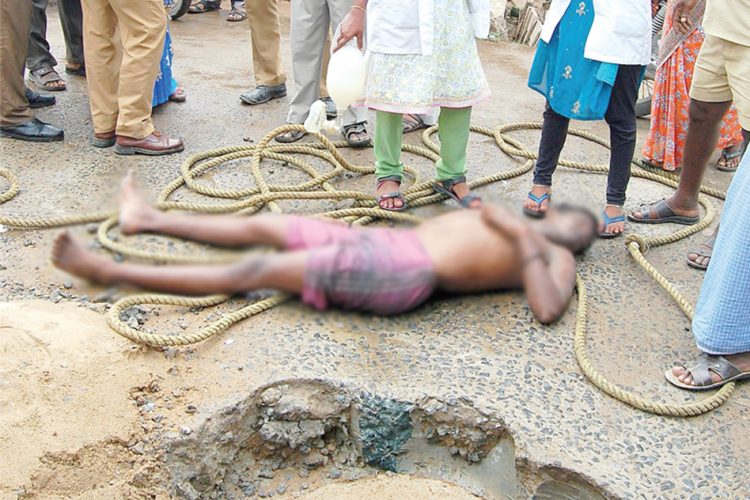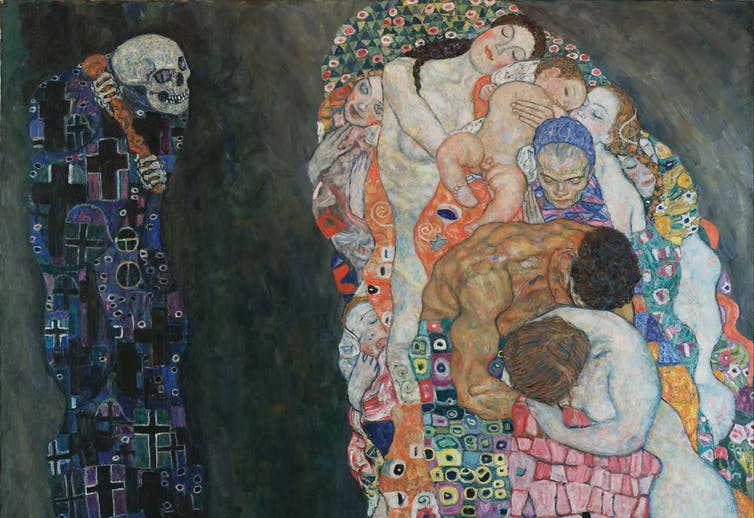MATTER OF CONCERN
Several manual scavengers lose their lives annually it is urgent to address the issue transcending legislative mechanisms.
The New Leam Staff
India’s battle with untouchability had been a long and sustained one. Nationalist leaders like Gandhi and Ambedkar wrote and worked extensively to make people aware of the inhuman and uncivilized institution of caste hierarchy and untouchability.

The stigma associated with manual scavenging is extremely significant for us to address and enable communities originally associated with the practice be empowered. Paradoxically even post-independence untouchability continued to be an integral aspect of the nations’ consciousness. Annually several scavengers lose their lives in the inhuman practice.
Recently two manual workers stepped down inside a drain in Hyderabad just a couple of days ago to unclutter it and the leak of poisonous gases lead to their deaths in ten minutes. The victims were migrant workers from Odisha who came to Hyderabad in search of work and they lost their lives. They had just entered the drain when the leak of poisonous gasses led to their deaths. The two men suffocated and died. The Hyderabad Metropolitan Water Supply and Sewage Board and has ordered an investigation into the matter. The families of the victims have been offered a compensation of 10 lakh rupees. Manual scavenging is banned in India. Law prohibits any contact between human beings and human excreta and makes this punishable by law. However it is evident that manual scavenging is widely practiced in India.

The Prohibition of Employment as manual scavengers and their Rehabilitation Act provides the prohibition of employment of people as manual scavengers.
It is estimated that 10,000 become manual scavengers every year in Hyderabad. In the nation several people have died earlier due to manual scavenging. Many of the manual scavengers work without any safety apparatus given to them by the employer; they put their own lives to danger. Scavenging as a profession may have been become legally prohibited but manual scavengers are employed throughout the country. It is paradoxical that in spite of adequate legislation manual scavenging continues in the nation.
It is estimated that 62,000 million litres per day (MLD) of sewage is generated in urban India of which only about 30% of this waste goes through treatment plants. The rest of the sewage is disposed into rivers, seas, and wells.
Over 85 million people in urban India don’t have access to adequate sanitation. Figures for rural India are worse. Open defecation is practiced by 55.21% households as on 31 March 2015 is 55.21% according to numbers stated by the Lok Sabha in a report.
A critical cause for the practice of scavenging is the existence of defecation infrastructure where excreta has to be removed physically. The railways are a primary cause for manual scavenging as many of them drop excreta on tracks that scavengers clean manually.
It is ironic that post-independence a barbaric mechanism such as scavenging continues to exist. The section of people engaged in scavenging is exposed to excreta and their job makes their lives inhuman. It is a contemporary mechanism for exploiting a great section of people.
It must be ensured by nation states that scavenging as an institution is abolished and alternative employment is generated to ensure that people are not compelled to do manual scavenging due to lack of alternative employment.
***














